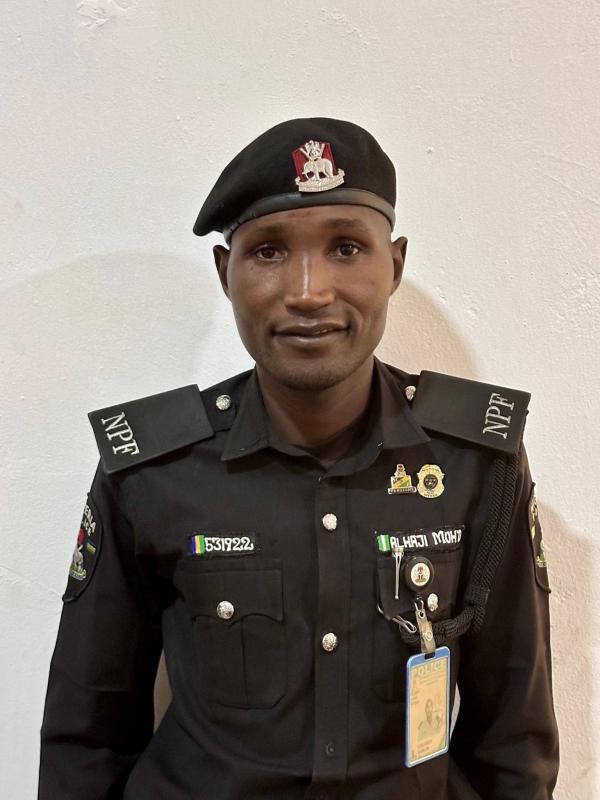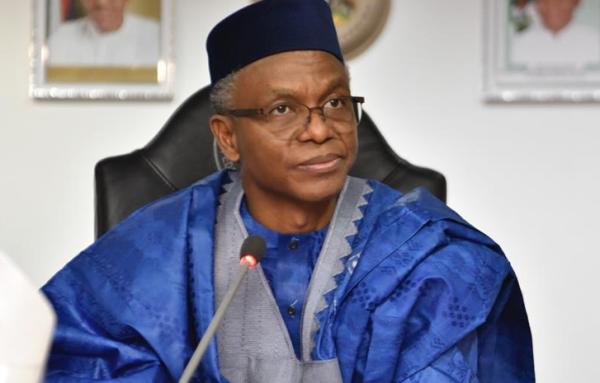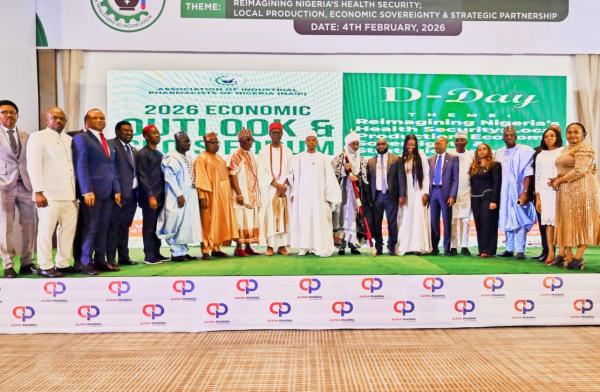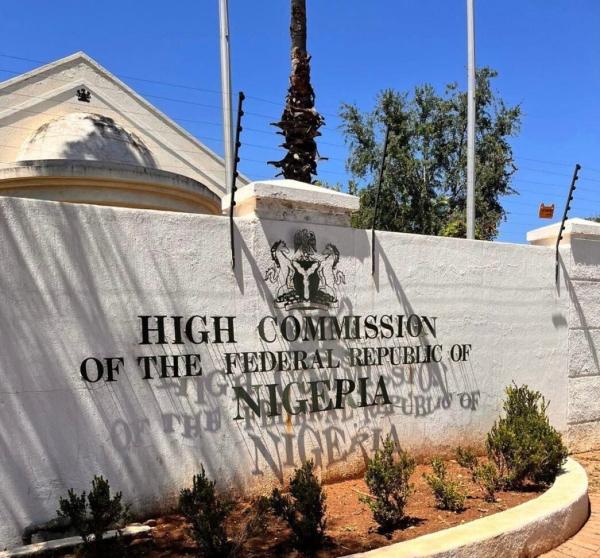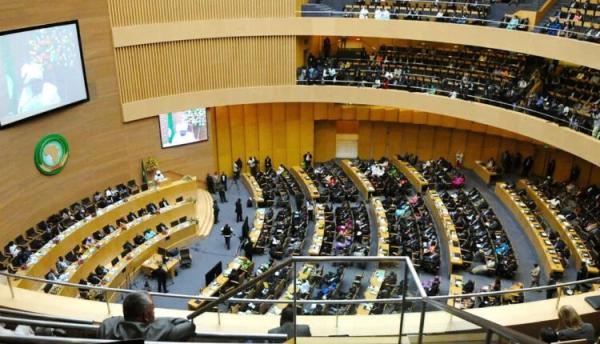
The South West Geopolitical Zone Sensitization and Community Partnership Workshop which was organized by the Force Intelligence Bureau of Nigeria Police Force, held on Saturday, 8th June, 2013 at Kakanfo Inn and Conference Centre, Ibadan, Oyo State with the Theme: ‘Enhancing National Security Through Intelligence AND Community Partnership’.
1 The workshop was attended and declared opened by the Executive Governor of Oyo State, who was ably represented by the Deputy Governor, His Excellency, Mr. Moses Alake Adeyemo. Other guests included Representatives of the Governors; Commissioners for Local Government and Chieftaincy Affairs; Special Advisers on Security, Local Government Chairmen and Royal Fathers within the South West Geopolital Zone. Others included delegates of Nigerian Bar Association; Nigerian Union of Journalist; Police Community Relations Committee; Transport Unions; Women Bodies; Youths Association; Community and Opinion Leaders; Religious and Cultural Leaders; and other Strategic Security Stakeholders from States within the South West Geopolitical Zone.
Also in attendance were DIG Abdulraman Akano, fsi (the Coordinating DIG, South West Geopolitical Zone who delivered the speech of the Inspector-General of Police; AIG Solomon E. Arase, fdc., AIG (Force Intelligence Bureau); and AIG zones 2, Lagos and 11, Oshogbo. Others included Commissioners of Police in Oyo, Lagos, Ondo, Osun, Ekiti and Ogun states; Deputy Commissioners of Police, Area Commanders, Officers-in-Charge zonal and state Intelligence Bureaus; Divisional Police Officers, Police Community Liaising Officers drawn from the South West Geopolitical Zone of the Country;
2. The workshop session was chaired by Prof. Tekena Tamuno.
3. Four papers were presented on varied aspects of intelligence-led policing, community-police partnership and national security by qualified and experience resource persons including Mr. Fola Arthur Worrey, the Secretary, Lagos State Security Trust Fund who gave a presentation on ‘intelligence – led Policing and Internal Security: the Imperative of Community Partnership; Dr. Danjibo Nathaniel of the Institute of African Studies, University of Ibadan who delivered a paper on ‘Role of Non-State Actors in Crime Management; Barr. Bamidele Aturu who made a presentation on ‘Security Alertness and Community policing: A Crime Prevention Strategy’ and Dr. Tonnie Iredia, OON whose paper focused on ‘Policing and Community Partnership: the Communication Imperative’.
4. During the proceedings, the following major observations were made:
i. The Nigerian police are constitutionally recognized as the primarily law enforcement agency and they represent the largest security agency with the broadest mandate in Nigeria. Unfortunately, they are underfunded and lack the capacity of operational efficiency.
ii. In spite the common saying that the police are the public and the public are the police, there is limited scope of interaction between the Nigerian police and the local community which inhibits smooth police – public partnership. Yet, Police acceptance of the Police is vital to intelligence functions of the police.
iii. The weak relationship between the police and the public is a product of public perception relating to police corruption, inability of police to protect the integrity of intelligence and security of human sources from where such intelligence are obtained, poor accountability process, poor narrative of police functions and activities by police management; unprofessional police conduct; the erroneous public assumption that policing is the sole responsibility of officers and men of Nigeria police force; poor police funding and policing impunity;
iv. It was also noted that inter-agency collaboration and intelligence and security agencies engaged in internal security management also presents a major challenge to the intelligence-led policing initiatives of the force.
v. Despite these challenges, intelligence-led policing community partnerships are strategic to the attainment of police mandate.
vi. There are internal and external categories of intelligence. The internal category borders on information sourced from the internal records of the police while external categories are pieces of information sourced from the community.
vii. Unfortunately, the police have not developed the capacity for internal intelligence – gathering mechanism as reflected in the absence of national criminal data base. Similarly, public trust which vital to police-community partnership is also lacking.
viii. Community partnership is a security arrangement by which a social unit of any size that shares common values agrees to cooperate with the police for the advancement of their mutual interests in relation to the protection of their lives and property.
ix. Community relationship is about image management, especially, in relation to the turn out and conducts of the members of rank and file of the force who interact with the average citizen. It is, therefore, expedient for police executives to commence a conscious narrative and information management system that will change public perception and re-establish public trust in the police institution. It is only through this approach that intelligence functions of the force through voluntary community partnership, can be achieved.
x. The demographic expansion of Nigeria, poor funding and manpower challenges are major challenges that necessitate the idea of the police engaging other stakeholders to complement them in the performance of their duties.
xi. Within the community partnership network, there are some strategic state and non-state actors whose inputs are vital to intelligence functions of the police. These actors include Traditional Institutions, Local Government Administrators, Religious Institutions, Community Leaders and Youth Associations.
xii. That the Nigerian state, by creating a state of social-economic imbalance is engendering avoidable security challenges for which the police lack the capacity to address. In addition, by underfunding the police, the political elites have not only limited the level of police efficiency; they have created grounds for blurred police-community partnership and loss of public confidence in police institution.
xiii. Effective communication is vital to effective policing and community acceptance. However, it is only when internal communication is achieved that the police can effectively communicate with the public.
xiv. It was only noted that police as part of their poor communication management culture, engage in discordant tunes, misinformation, and stereotyping in communication thereby affecting public perception of the institution.
xv. There are too many oversight controls of the police institution, thereby creating conflicting supervisory roles.
xvi. Rather than see media as partners, the police fight with them. Yet, the media represent a veritable platform for the police to communicate.
- The police must recognize that for every communication, there must be feedback. The police do not engage.
- Communication is a process that incorporates a sender, message, medium and receiver. For better policing communication, the police must utilize this process in the most appropriate manner.
- At the conclusion of the summit, the following were recommended by the participants:
i. There is need to redefine police functions and re-establish public trust in the institution.
ii. There is need for better information management by the police authorities and constant interaction between the community and the police to address misconceptions as to police functions.
iii. There should be greater investment in police structures, training and welfare, while the internal control mechanism and enforcement procedure must be strengthened.
iv. The police should develop transferable institutional memory of intelligence and must evolve mechanisms for re-assuring members of the community who act as source of information.
v. For effective intelligence gathering that is premised on community support, the police must address internal challenges that threaten public acceptance. Accordingly, policing challenges like corruption, lack of accountability, incivility to members of the public, re-active policing practices, betrayal of the security of informants, and poor operational capability must be addressed.
vi. The police should appreciate the strategic roles of vital components of the community, and network sincerely and professionally with them in their policing activities.
vii. There must be uniformity in operating procedure through mobilization of internal workforce of the police and effective internal information management process.
viii. The police should also redefine its operational roles by refraining from extending official protection to identified criminal elements.
ix. Police must understand the virtues, process and elements of positive communication in order to project itself positively, gain public confidence, and engender public acceptance needed to generate valuable criminal intelligence.
x. The police should embrace the media as a veritable platform for altering public prejudice rather than treat them as adversaries.
xi. The police leadership should drive the process of intelligence-led policing the community partnership on a sustainable basis.
This Communiqué was adopted as representing the outcome of south west edition of the workshop by chief Eni Olotu. He was seconded by chief (Mrs.) Aisha Tosan.












